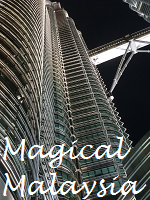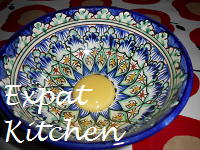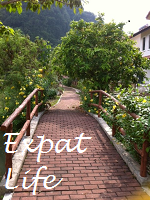Malaysia is a country with a mixed bag of cultures and they
all celebrate differently. A few weeks
ago we were invited to help celebrate the wedding of one of my husband’s
colleagues – her husband to be is Chinese and she is half Chinese half Kelabit
so they were having a fusion event.
In Malaysia only Muslim marriages can combine official and
cultural elements (not dissimilar to a Church wedding in the UK) so it is
common for the cultural and official weddings to be held separately. In this instance the couple had been legally
married a few weeks before but the cultural wedding was the big event.
| The wedding in Miri's Catholic Cathedral |
The couple are both Catholic so, in the morning, we went to
the Church wedding. This was a fairly standard Catholic wedding – no different
to the many that I have been to for other friends with the exception that it was very large - the groom's family alone comprised more people than we invited to our wedding. We then went home until the evening reception
at a local hotel some hours later – this is when the differences really showed.
When we arrived at the event we handed over our Angpow – a little
red envelope with the money for the wedding.
It is not traditional, here, to give gifts at a wedding unless you are
very close to the family, instead you give a set amount of money per person
attending sufficient to cover the costs of your meal. One of our friends said that 90% of the cost
of his wedding was covered by the contributions from the angpows. A table is set up at the entrance to the
event for guests to hand over the envelope and have their names (and
contribution) ticked off a list. Again there were a lot of people - the tables filled the hotel's (large) grand ballroom, there were easily more than 400 people there but we were told that it was not an unusual size for a wedding.
| A large family... |
Sarawak is a fairly casual place and so it was not
surprising to see guests in a range of dress from traditional to t-shirt and shorts
to full wedding attire. The formal event
started with an introduction of the bridal party (who had changed to different
clothes from earlier in the day) and then the first of a ten course meal was
brought in. The lights were dimmed, beat
music started up and waiters carrying candlelit plates negotiated their way
through the maze of tables to bring the food to the guests. A friend mentioned that this is quite normal
in Sarawak – hotels seem to choose techno music by default but guests can opt for
a different track if they prefer. Shortly
after this the bridal party changed again
- a total of three different outfits!
| Handing over Angpows |
During the course of the meal there were video showing the
couple’s courtships and events from earlier in the day. These included the groom and his groomsmen
coming to the bride’s house to take her to church. They were met by the bridesmaids who set them
several tasks to negotiate – from eating neat wasabi sauce to identifying the
bride’s lipstick print on a piece of paper.
Angpows were handed over to the bridesmaids and the groom was finally
allowed to enter. The bride and groom
shared tea with their family and then went to the church leaving the house
under a red umbrella (for luck) while firecrackers sent out clouds of red
confetti.
Back at the reception the bride’s relatives had arranged for
some traditional Kelabit elements to be included in the celebration including a
traditional wedding song and a traditional dance (although the music, by the
Rivers of Babylon, was anything but traditional). The bride’s family are from Bario in the
highlands where the beadwork is particularly fine and very prized. Gifts from her family to the grooms included
a parang (a type of machete) for the groom and bead necklaces for both the men
and women of his family. The bride was
also given a traditional beaded bridal skull cap, belt and necklace.
| Kelabit Bridal Song (you can just see the women wearing beaded headbands) |
Towards the end of the evening the guests stood to toast the
happy couple with a Chinese toast of ‘yah,
se’ said as loud and as long as possible.
An equivalent to hip, hip hurray
Click on the picture for more posts on life in Malaysia.
Click on the picture for more posts on life in Malaysia.







